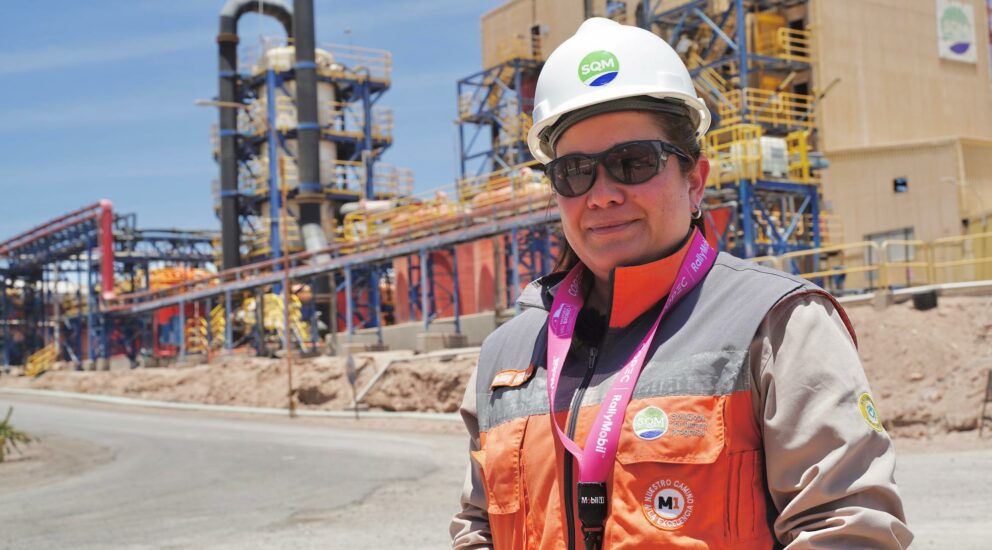
SQM stands out for its commitment to and progress towards a circular economy
18/Dec/2023
In the framework of the international event Santiago Circular Economy Hotspot 2023, SQM was among the companies spotlighted for the progress achieved in their circular economy performance by implementing the Clean Production Agreement (CPA) Transition to a Circular Economy, managed by Acción Empresas.
For SQM, sustainability is a corporate value and a voluntary commitment that integrates a vision of the future with a series of initiatives related to circularity, environmental care and sustainability. These actions enabled it to add a new recognition to its exponential progress at its Coya Sur and Port of Tocopilla operations, both located in the Antofagasta Region.
This time, Corfo’s Sustainability and Climate Change Agency (ASCC) recognized SQM’s operations for the progress achieved in their performance in circular economy and in the management of their production processes. This recognition is one step before the third and final evaluation stage, which will allow a total of 23 companies to earn the CPA Transition to the Circular Economy seal in 2024.
Valentín Barrera, SQM Lithium’s Deputy Sustainability Manager, highlighted this recognition, stating that “our mission is to achieve a sustainable industry that provides solutions for human progress, while caring for the environment and making a commitment to neighboring communities and their surroundings. Through this CPA, we have better understood the circularity of our input and output processes and of our efforts to manage, for example, water, since we recirculate it in the production processes at our operations. We are so pleased to receive this award, which encourages us to continue on this path of circularity.”
The executive added: “The most interesting thing for us has been quantifying the circularity of operations using a methodology developed by the WBCSD (World Business Council for Sustainable Development) in conjunction with KPMG’s CTI tool. This tool measures both virgin and non-virgin materials from their origin as well as output circularity.”
Meanwhile, Ignacio Majluf, SQM’s Nitrates-Iodine Performance and Sustainability Manager, noted: “These advances are undoubtedly achieved with the commitment of all levels of the company. The different work teams involved in this process have developed key concepts through various trainings in order to understand the 3 main elements of circularity: Preventing waste generation at source, extending the useful life of resources and using waste as a resource.”
Ximena Ruz, executive director of the Sustainability and Climate Change Agency, commented that “Chile’s transition from a linear economy to a circular economy has become a national priority. This is the importance of the private sector and where companies have taken the lead. They have advanced in the early stages of the circular economy, such as reducing waste generation, eco-design, improving process efficiency and recycling.”
For process inputs, the solutions highlighted included reducing the use of materials like paper and increasing the use of raw materials containing recycled material; while for process outputs, circularity improvements were aimed at optimizing the recovery and reuse of materials in the same processes, as well as improving the sorting of waste, in order to increase recovery rates and reduce landfill disposal.